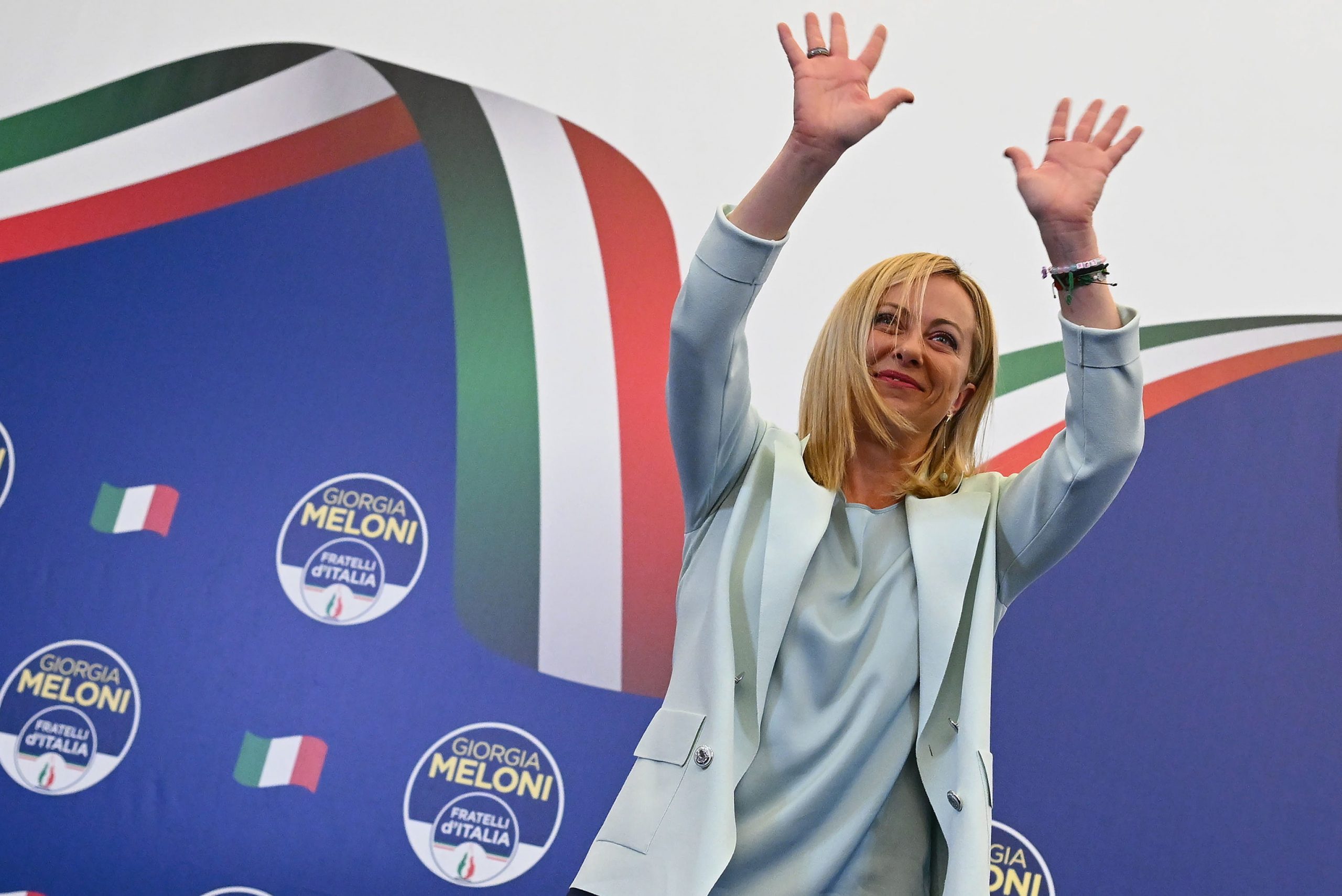
According to Action for Democracy, Hungary and Italy are both "battleground states."Continue reading

The Sunday elections in Italy have shown that citizens are becoming increasingly immune to the threats of supra-national powers and the financial muscle of the politically engaged corporate and non-profit sector.
The center-right coalition lead by Giorgia Meloni, Matteo Salvini and Silvio Berlusconi have, according to exit polls, grabbed as many as 45 percent of the votes, which will give them a comfortable lead to form a stable government. However, parallels between the Italian and Hungarian elections held back in April are notable just as much as are the results themselves. There are a number of points in which events have unfolded in a similar fashion during the election campaign, and in which the electorate has reacted to outside pressures.
Only the owners of the Italian press could explain why their papers have not reported extensively on outside financial resources pouring into the coffers of Italian parties. As we have reported, groups such as the controversial US political lobby group Action for Democracy had designated Italy as their next battleground for “democracy”, after their generous, and most likely illegal financing of the Hungarian opposition’s campaign, as reportedly billions of forints have failed to produce the desired results. It seems the financial muscle of the globalist progressive left is becoming less of an effective tool in European elections, as even previously left-leaning voters can now increasingly feel the social and economic consequences of uncontrolled mass immigration, climate radicalism or the centralizing ambitions of the European Union’s power elite.
Ursula von der Leyen’s gaffe days before the Italian elections has unequivocally managed to let the cat out of the bag as far as Brussels’ intentions are concerned. The Commission’s president has remarked that her office is in possession of “tools needed” that could reign in an unruly Italian right-wing government that would get out of line in Europe, just as they did in the case of Hungary and Poland. The two Central-Eastern European countries are currently suffering from de facto sanctions from Bussels, that is withholding essential Covid recovery funds from the two conservative-lead governments. If Brussels have intended to make an example of the governments in Budapest and Warsaw in order to dissuade others from taking their path in terms of immigration policy, gender issues, national sovereignty or opposing the EU’s federalist intentions, the Italian elections have shows that their central authority is waning, as a result of which they are unable to shift public sentiment with threats of political repercussions.
The topic of immigration and family policies was central to the Italian elections, especially for Meloni’s campaign. It is no surprise then that the Hungarian legislation protecting children from gender policy, family supporting economic measures and its border protection policies have surfaced numerous times during the campaign. Enrico Letta, the left-wing coalition leader’s disparaging remarks on the account of Budapest and Warsaw, in which he called the two countries second-rate and warned that Italy could be relegated to their league in case they diverge from the political direction set out by Brussels, has helped his political movement very little in gaining extra votes. On the contrary, judging by the results, the Hungarian and Polish governments have gained a new ally in Italy’s emerging government, while the internally expanding EU has gained another possible thorn in its side.
The greatest loser, as well as one of the winners of the Italian elections is no doubt Salvini’s League. The once 20 percent plus party is now trailing behind with sub 9 percent results. His former voters have most likely migrated to Meloni’s FdI after seeing their leader propping up Mario Draghi’s so called technocratic government, along with Berlusconi’s Forza. Voters have watched the once firebrand anti-immigration minister of interior turn into a member of a government that put up no resistance against NGO boats ferrying illegal migrants to Italian shores in their tens of thousands. Instead, Meloni was reaping the benefits of her consistent and unapologetic stance not only on migration, but on a range of classical conservative topics, on her own receiving over a quarter of the Italian votes. Salvini could thus become the single most destabilizing element within a possible new Italian government, which is facing its greatest threat from within, springing from tensions between Meloni and Salvini simmering since their public schism after the Lega has joined the Draghi government.
It is perhaps no surprise then that the Hungarian Prime Minister’s first, and to date only reaction to the results of the Italian elections was only: “Bravo, Giorgia”.
Featured Photo: MTI/EPA/ANSA/Ettore Ferrari